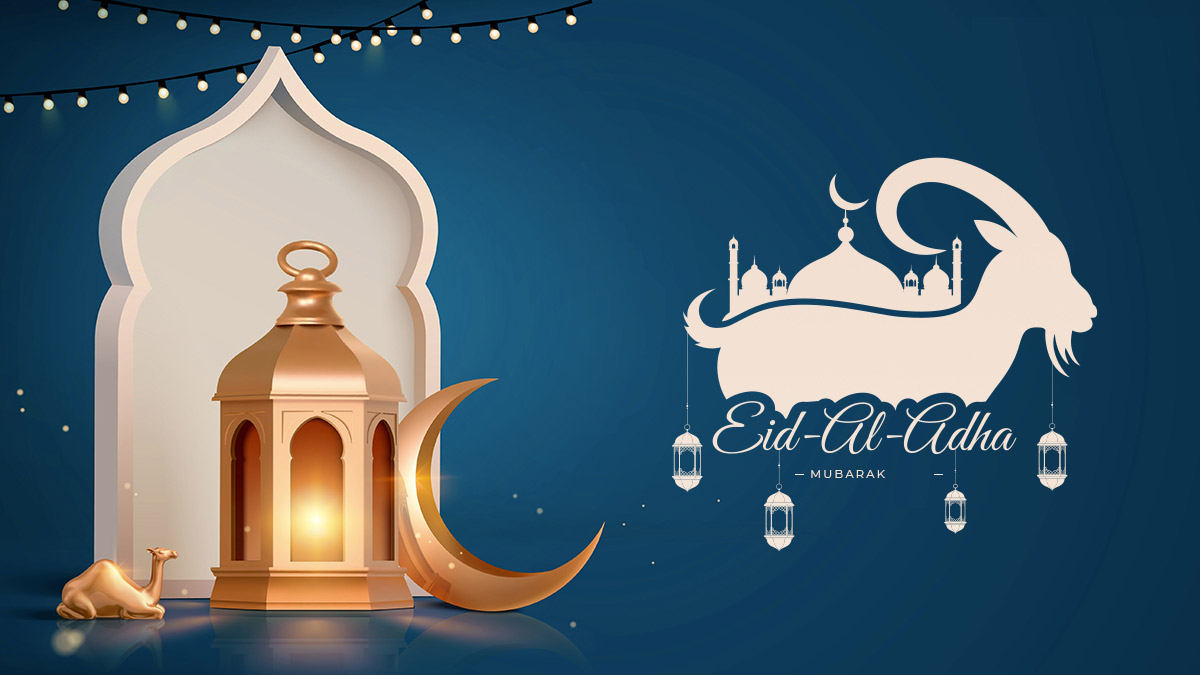
Celebrating Bakar Eid 2023: Traditions, Significance, and Contemporary Practices
Bakar Eid, also known as Eid al-Adha, the Feast of Sacrifice, Greater Eid, Kurban Bayrami, Tabaski, or Qurbani Eid, carries profound religious significance in the Islamic world. It is a festival celebrated by millions of Muslims around the globe. This comprehensive guide explores the traditions, customs, and contemporary practices associated with Bakar Eid. It is designed for individuals interested in Islamic culture, Muslims wanting to understand the importance of Bakar Eid, scholars researching religious celebrations, and anyone looking to participate in or learn about the festival.
Religious Significance of Bakar Eid
Bakar Eid, the 'Feast of Sacrifice,' marks an important event in Islamic history when Prophet Ibrahim (Abraham in Christian and Jewish traditions) was ready to sacrifice his son Ismail as an act of obedience to God. However, God replaced Ismail with a sheep at the last moment, thus sparing the child's life. This festival is a commemoration of this ultimate act of sacrifice and denotes a Muslim's readiness to give up their possessions and desires for the sake of God.
Traditions and Customs: Then and Now
The key ritual of Bakar Eid involves the slaughtering of an animal, such as a goat or sheep, to reflect Prophet Ibrahim's sacrifice. This tradition, also known as Qurbani, is carried out worldwide by those who can afford it. Typically, the meat from the sacrificed animal is divided into three parts. One part is given to the poor and needy, another is kept for home, and the third is given to relatives.
Over the years, as societies have evolved, so have the customs of Bakar Eid. In many parts of the world, traditional slaughtering has been replaced with charitable donations equal to the cost of a livestock animal, known as "fidyah". This shift not only adapts the tradition to a modern context but also helps cater to the socio-economic needs of the less privileged in society.
Bakar Eid vs. Other Eids
Bakar Eid, or Eid al-Adha, is sometimes confused with Eid al-Fitr, the 'Festival of Breaking the Fast.' While both are significant religious events, they differ in their origins and practices. Eid al-Fitr marks the end of Ramadan, the holy month of fasting, whereas Bakar Eid commemorates Prophet Ibrahim's sacrifice. The former is associated with charitable giving, family meals, and prayers, while the latter involves the ritual of sacrifice or Qurbani.
Preparation and Practices for Bakar Eid 2023
Preparation for Bakar Eid begins well in advance. Families who can afford it arrange for an animal for Qurbani. In the weeks leading up to Bakar Eid, mosques and community centers are usually buzzing with activity.
On the day itself, the celebrations begin with a special prayer, 'Salat al-Eid,' in congregation. After the prayer, the ritual of Qurbani is performed. The rest of the day is typically spent visiting relatives and sharing meals. In recent years, online platforms have gained popularity for performing Qurbani, making it easier for the global Muslim community to fulfill their religious obligation.
Global Celebrations: Unity in Diversity
The celebration of Bakar Eid takes on diverse flavors as one travels across the globe, reflecting the cultural richness of the Muslim world. For instance, in countries like Turkey, the festival is known as Kurban Bayrami, while in West Africa, it's referred to as Tabaski.
In Southeast Asian countries like India, Pakistan, and Bangladesh, the festival is known for its elaborate feasts including special dishes like Biryani and Korma. In the Middle East, families gather to share meals that include dishes made from the sacrificed animal. The meat is often used in traditional dishes like Mansaf in Jordan or Kabsa in Saudi Arabia.
Impact of the COVID-19 Pandemic on Bakar Eid Celebrations
The COVID-19 pandemic has led to significant changes in the way Bakar Eid is celebrated. Public gatherings for prayers have been limited or replaced by virtual meetings in many places. The practice of Qurbani has also seen changes, with more people opting for online platforms to perform the ritual, maintaining safety protocols, and supporting local economies.
Despite these changes, the spirit of Bakar Eid — of sacrifice, charity, and family — remains intact. As one anonymous believer put it, "The pandemic has taught us the real essence of Bakar Eid. It's not just about the rituals, but about sharing and caring."
The Role of Bakar Eid in Modern Muslim Society
Bakar Eid plays a crucial role in the Muslim society today as it did centuries ago. It serves as a reminder of the virtues of sacrifice and generosity. In addition to religious practices, Bakar Eid also provides a sense of community and belonging. It is a time when families come together, meals are shared, and gifts are exchanged.
Recipes and Foods associated with Bakar Eid
Food forms an integral part of Bakar Eid celebrations. After the Qurbani, families prepare a feast with the fresh meat. The dishes vary from region to region, reflecting the local cuisine. Some popular dishes include:
- Biryani: A flavorful dish prepared with basmati rice, meat, and a blend of spices.
- Mutton Korma: A creamy, aromatic curry made with goat meat, yogurt, and spices.
- Mansaf: A traditional Jordanian dish made from lamb cooked in a sauce of fermented dried yogurt and served with rice.
- Kabsa: A Saudi Arabian dish made with rice, meat, and a mix of spices.
In conclusion, Bakar Eid is a celebration that goes beyond the boundaries of nations, uniting Muslims worldwide in a festival of sacrifice, charity, and communal harmony. Whether you're participating in the celebrations or simply curious about the festival, understanding the traditions, significance, and contemporary practices of Bakar Eid can deepen your appreciation for this important event in the Islamic calendar.
Festival




